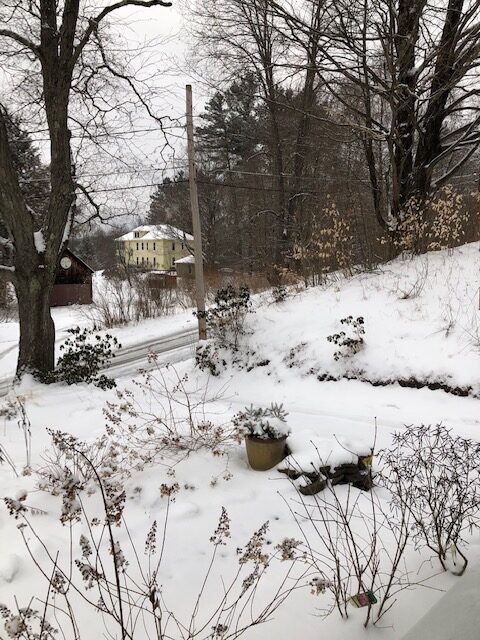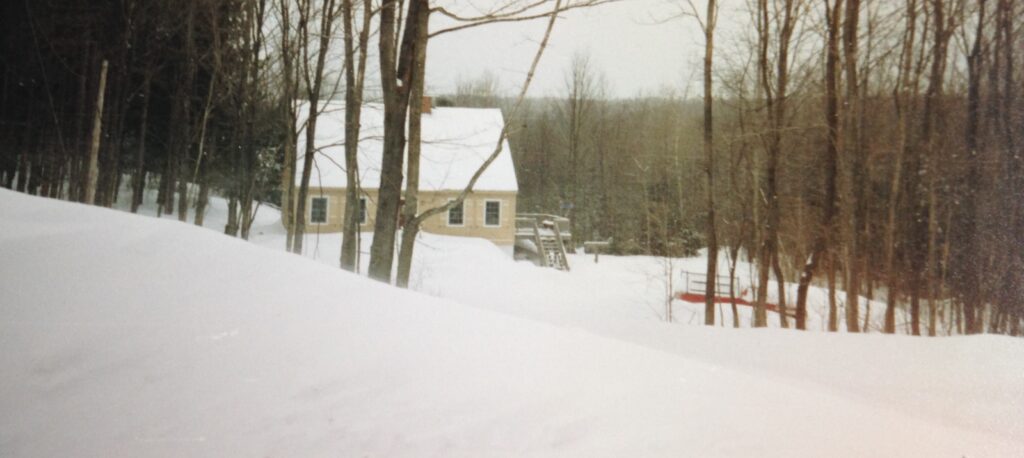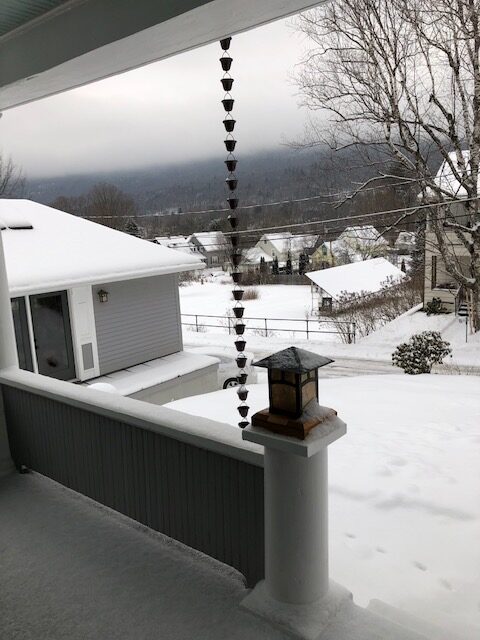Here’s the next Hilltown Postcard — stories I wrote years ago about our life in rural Western Massachusetts. My agent at the time wanted me to write a tell-all book with lots of dirt, but I didn’t have it in me to do that. Rereading those stories has inspired me to write more. In some instances, I have changed people’s names. That’s true for this story.
I used to see Nigel pushing his bicycle up Mason’s Hill toward the general store in Worthington. He wore a porkpie hat and tinted aviator glasses, stopping at times on the steepest part to rest. It was an old-style bike, one speed, fat tires, and a metal basket on the front.
If there was a hermit in our town, he was it. He lived on Dingle Road, in a house that hadn’t had a coat of paint in years, one of those New England stringer homes, where buildings get added on in a row like blocks. The grass grew tall and dried. The place looked unwelcoming, and that’s probably the way he liked it.
Nigel may have shunned people, but many years ago he stirred up his neighborhood. It was a quiet Sunday summer afternoon when Nigel dressed in winter clothes took shots at his own house from the outside.
Neighbors called the town police, but the chief realized this was beyond him and called in the state police. Things were quiet when the cops came, but Nigel had barricaded himself in his house with several loaded guns and ammo.
The police moved the neighbors out of their homes and used a loudspeaker to get him out, but he wouldn’t budge. A Special Tactics Operation Team surrounded the house. Finally after seven hours, police launched a canister of tear gas into the home, which finally drove him out. He was taken to a ward at the VA hospital, where he stayed for a couple of years.
Turns out Nigel, then nearly 60, used to teach math and physics, but he got fired when he hit a fellow teacher. He didn’t deny doing it nor did he explain why. He sued successfully for back pay. He also wanted to be reinstated but that didn’t happen.
After the incident, neighbors said Nigel was quiet and kept to himself although one got to know him when they repaired a water line they shared. She said he was intelligent and well read. He was profoundly hard of hearing so she made sure she faced him when she talked. An elderly brother dropped off groceries.
Nigel once asked Hank if he worked in Northampton because he needed a ride, but he didn’t. He told him of another man in town who did and that arrangement lasted a while until he moved.
Another man inherited Nigel. Bruce said Nigel would call him from the pay phone at the store to arrange a ride. He’d be waiting outside his home, and Bruce didn’t mind going out of his way to drop him off at the law library. He didn’t explain what he was researching or much about himself. They rarely talked.
One fall afternoon, I was stacking wood and lost in thought until I looked up to see Nigel staring at me. (We had moved across town to a house we built near Mason’s Hill.) He held his bike so quietly he could have been an apparition.
Nigel didn’t introduce himself, but, of course, I knew who he was. I don’t know if he knew my name, because he didn’t use it. He wanted a ride back and forth from Northampton.
His hearing aids weren’t working, so I couldn’t explain how we could arrange that. I found paper and a pen. I would be leaving at 6:15 a.m. and I would come by his house.
I went the next morning. It was before the change in time so it was still dark that morning. It had rained that night, so everything was black and shiny in the headlights. I stopped in front of his house. No light was on inside. No sign of movement.
I thought to sound the horn or knock on the door, but I didn’t think he would hear either. I wouldn’t even know which door to knock. I waited fifteen minutes, and then drove off.
I didn’t see Nigel again. Two years later, in the middle of February, he died alone in his house. The medical examiner ruled it was from natural causes, likely a heart attack. He was 72.
The police found him locked inside his home after the person who delivered him meals felt something was amiss. Nigel had lived in town for 20 years and the police chief noted he was a man who didn’t want any outside help.




